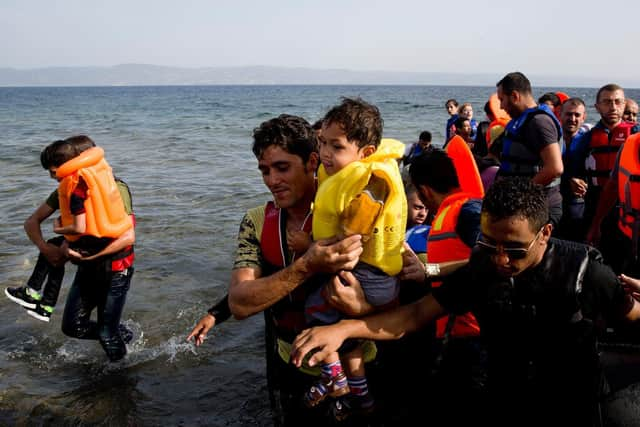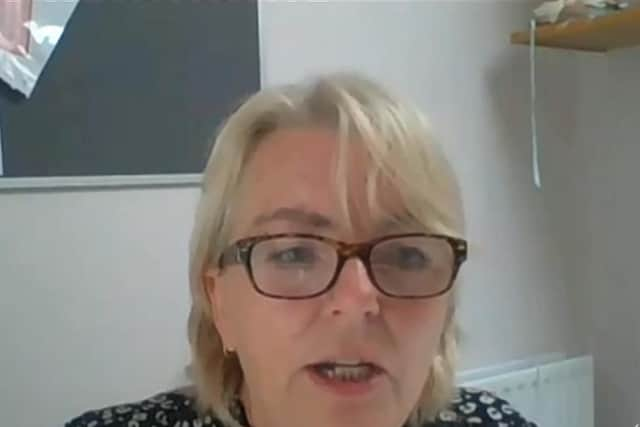Refugees trapped in ‘poverty and trauma' says Breidge McPherson of Derry Women's Centre
and live on Freeview channel 276
That’s the stark picture painted by Breidge McPherson from the Derry Women’s Centre when she briefed the NI Affairs Committee.
Ms. McPherson, BAME (Black, Asian and minority ethnic) advocacy project worker at the Women’s Centre, was providing evidence to the NIAC on the experience of minority ethnic and migrant people in Derry.
Advertisement
Hide AdAdvertisement
Hide Ad“Families that I work with are the women and children who are here on the Vulnerable Persons Resettlement Scheme (VPRS) - women and children and fathers who have left their homeland, their country, their family, their jobs, their education in Syria - Aleppo, Damascus, Idlib - and they have had to travel to Lebanon and Egypt,” said the local women’s equality worker.


Ms. McPherson said vulnerable families who have been resettled in Derry under the (VPRS) scheme which opened in 2014 are often living in very poor conditions.
“They’ve had a long and winding road and they have arrived here in Derry to be resettled....
“They are trapped within a system of poverty and trauma,” she claimed.
Advertisement
Hide AdAdvertisement
Hide AdShe added that there were also issues with housing and access to healthcare.


Getting access to vital medical services is also a major problem, she said, stating, ‘their access to health care is abysmal to put it mildly’.
“As you will know ethnic minority groups are disproportionately affected by socio-economic deprivation - a key determinant of health status.
“Then these people, who have been chosen because of their vulnerability - they are women and children at risk, people in severe need of medical care and survivors of torture and violence - these are the people who come here and then they try to access medical care and their first language is not English.
Advertisement
Hide AdAdvertisement
Hide Ad"Therefore some individuals are not registered at all with GPs. Some GP surgeries are not taking on new patients, or dentists or opthamologists and these are people who have chronic health needs, who suffered tremendous trauma, who are suffering from grief and are brought here because they are chronically ill,” she said.
Ms. McPherson said many of the women she works with suffer a lack of confidence when dealing with the health service because they are not sufficiently fluent in English.
And there are barriers in communication.
She said: “A woman speaking Arabic who has very little English will try to ring the GP receptionist...Neither person understands each other so they are not able to arrange a GP appointment for themselves. It is very difficult and details get completely misinterpreted.
“The telephone conversations between the GP and the patients are impossible. Even if they get a telephone interpreter they often speak in a different dialect. It may be a male [interpreter] and a woman, a Muslim woman, or any woman, might not want to discuss her health problems with a male interpreter.
Advertisement
Hide AdAdvertisement
Hide Ad“There’s a myriad, a maze, a ball of problems there before you ever, ever get to see a GP.”
Refugees who have been placed here also at a disadvantage due to a system that is overly-focused on Belfast, Ms. McPherson added.
“Here in the north west in Derry we are doubly disadvantaged, doubly marginalised, because everything is Belfast-centric so these people, who are brought here because of their chronic health needs are doubly disadvantaged because they are sent down the road on a bus to Derry.”
She said there was a lack of resource here and as a result “people who are suffering on a day-to-day basis from lack of care and attention are not being heard at all.”